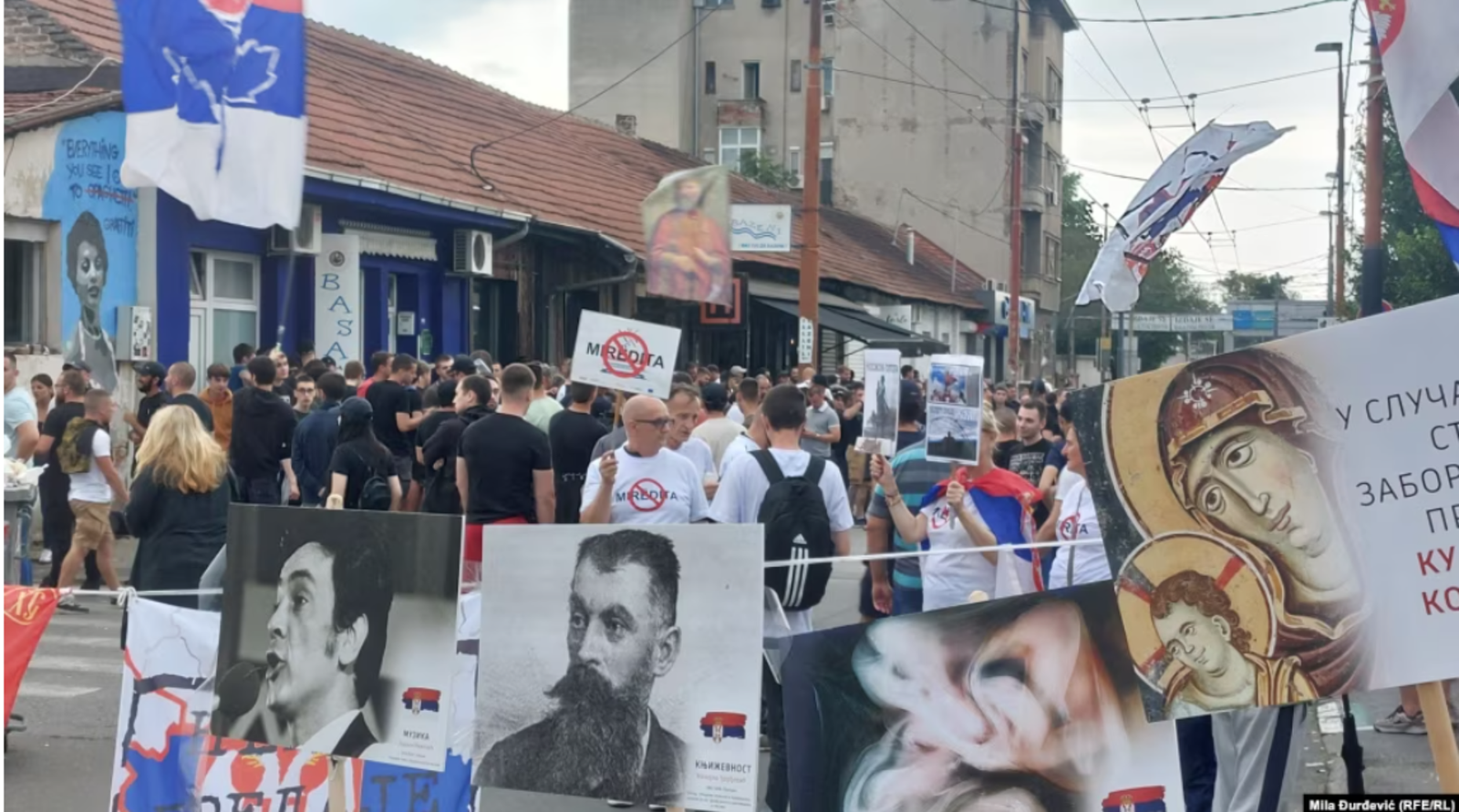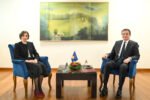One of the organizers of the “Mirëdita, dobar dan” festival, Sofija Todoroviq, received a threatening letter sent to her address, a day after the Serbian authorities banned the holding of this festival in Belgrade. The threatening letter was accompanied by a box containing the severed head of a pig. The letter stated that “the situation in the world is changing and other times are coming.”
The threatening letter was signed by the “People’s Patrol.” This is an unregistered far-right organization, known for its actions against migrants and ideological ties to groups from the Russian Federation. Initially, Todoroviq wrote on X – previously known as Twitter – that a person called her on the phone and introduced themselves as a courier who delivered the package with the letter. She then called the police, who opened the box.
“This is a nightmare and the state stands behind them. Don’t forget, this is how they defend Kosovo,” she wrote in another post. The “People’s Patrol” that took responsibility for the threatening message is an organization that became known to the public in Serbia in 2020 when, through videos, 20 young men dressed in black appeared, obstructing migrants and refugees in a center in Belgrade. Among them was Damjan Knezheviq, who claims to be the leader of the organization.
The group is also known for its messages against the LGBT community, as well as for spreading hatred on national, racial, and religious grounds. These messages have sparked controversy and condemnation from various groups and organizations advocating for equality and human rights. The group’s actions have been widely criticized for promoting discrimination and intolerance towards marginalized communities.
On the other hand, the festival “Mirëdita, dobar dan” has been organized since 2014 by a non-governmental organization from Kosovo and Serbia. The main goal of the festival is to improve cultural cooperation between artists from Kosovo and Serbia, fostering mutual understanding and dialogue through artistic expression. Despite facing challenges and opposition, the festival continues to promote cultural exchange and collaboration between the two countries.
This event, held alternately in Kosovo and Serbia, has faced protests in Belgrade. On June 27, extremist right-wing groups and fans blocked the entrance to the festival venue, preventing organizers and guests from entering. Shortly after, the Serbian Ministry of Internal Affairs ordered the festival to be banned, citing security concerns. However, the organizers argued that the state was siding with hooligans by banning the festival, a move that was criticized by the European Union and officials in Kosovo. The incident highlights the ongoing tensions and challenges faced in promoting cultural exchange and cooperation in the region.








